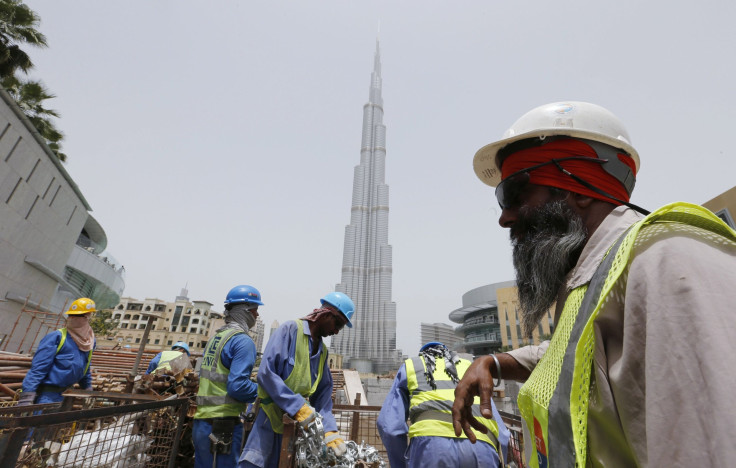US Jury Finds Against Indian Recruiter With $14M Verdict In H-2B Labor-Trafficking Case

A U.S. civil jury has for the first time named a foreign recruiter as a co-conspirator as part of the biggest labor-trafficking cases in U.S. history. Five Indian guest workers have been awarded $14 million in a lawsuit against Alabama ship and oil-rig repair firm Signal International, New Orleans-based immigration lawyer Malvern Burnett and Sachin Dewan, a recruiter based in Mumbai, India.
The case describes a largely unregulated global labor-recruitment network where aspirants to temporary jobs in the U.S. pay thousands of dollars in recruitment and travel fees, often under false promises of permanent U.S. residency. After they arrive, many find their stays are temporary, tenuous, and under inhuman conditions.
“The problem is transnational,” said Naomi Tsu, senior staff attorney for the Southern Poverty Law Center, whose lead attorney Alan Howard represented the plaintiffs in the four-week trial. “India has laws that tries to protect its citizens who work abroad. The U.S. has rules for its guest-worker programs. But the recruitment process itself is unregulated—or where it’s regulated the enforcement systems are weak.”
Wednesday’s federal jury decision in federal court in New Orleans concluded the three defendants coordinated to defraud and traffic nearly 600 Indian welders and pipefitters into the U.S. in the wake of Hurricane Katrina in 2005 as the region was facing a local shortage of skilled laborers.
The jury awarded nearly $5 million in compensatory damages and another $9 million in punitive damages. Signal was ordered to pay $12 million of the total. The plaintiffs in the case are Jacob Joseph Kadakkarappally, Hemant Khuttan, Andrews Issac Padaveettiyl, Sony Vasudevan Sulekha and Palanyandi Thangamani.
The workers came to the U.S. on H-2B visas designed for non-agricultural temporary seasonal workers. Every year, the U.S. grants 66,000 of these visas, which are renewable for up to three consecutive years. Demand for these visas from U.S. employers far exceeds the current annual quota.
The suit is one of dozens that have been filed on behalf of more than 200 Indian workers. Most of them are from the agrarian southern Indian state of Kerala, which is home to thousands of Indian nationals typically working menial jobs in Middle Eastern countries. They were sent to work at Signal’s shipyards in Pascagoula, Mississippi, and Orange, Texas.
Signal maintains that the charges are “meritless” and that the workers made $18 an hour with medical benefits, bonuses and matching 401(k) plans just like the company's U.S. employees.
“Signal strongly disagrees with rulings from the court in the case which impacted its ability to present defenses and is disappointed with the verdict,” the company said, in a statement Wednesday. “Signal is evaluating all of its options, including an appeal.” A call for comment from Burnett was not returned. Dewan was unavailable for comment Thursday.
The workers, many of them with welding and pipefitting experience from working in the Middle East, say they were lured into the jobs when Signal faced a shortage of local labor as the region recovered from the effects of Katrina. The plaintiffs claim they paid over $10,000 to recruiters after Dewan took out advertisements in newspapers in the Middle East, promising workers and their families a path to permanent U.S. residency.
“People think of these recruiters as rogue agents,” said J.J. Rosenbaum, legal director for the New Orleans-based National Guestworker Alliance. “What we see happening a lot is that these recruiters run around looking for workers as agents of U.S. employers. In this case there were meetings in India with Signal and Burnett, and the Indian recruiter organized it all.”
After borrowing money to pay the fees and arriving in Mississippi, the workers learned that they would only stay in the U.S. on the H-2B temporary work visa, and had no chance of obtaining permanent residency. Under U.S. guest-worker laws, the men could not quit without being forced to leave the country. Back home many of them faced debts incurred to pay the recruitment fees.
Labor rights advocates have long said the costs of entering the U.S. guest-worker system is so high for these workers that they become indentured to their U.S. employers, and quietly accept harsh working conditions and labor violations out of fear of being sent home to a life of servitude, often to loan sharks back home.
A separate suit brought by the U.S. Equal Employment Opportunity Commission, alleging that Signal retaliated against workers who stood up to complain about working conditions, will begin June 1. A raft of other lawsuits brought on by other Indian workers continue to work their way through the courts.
“At the policy level the case shows the need for a regulation of the transnational recruitment process and the employers in the U.S. that are using these workers,” said Rosenbaum. “We need to work at the international level to fix this problem.”
© Copyright IBTimes 2024. All rights reserved.






















